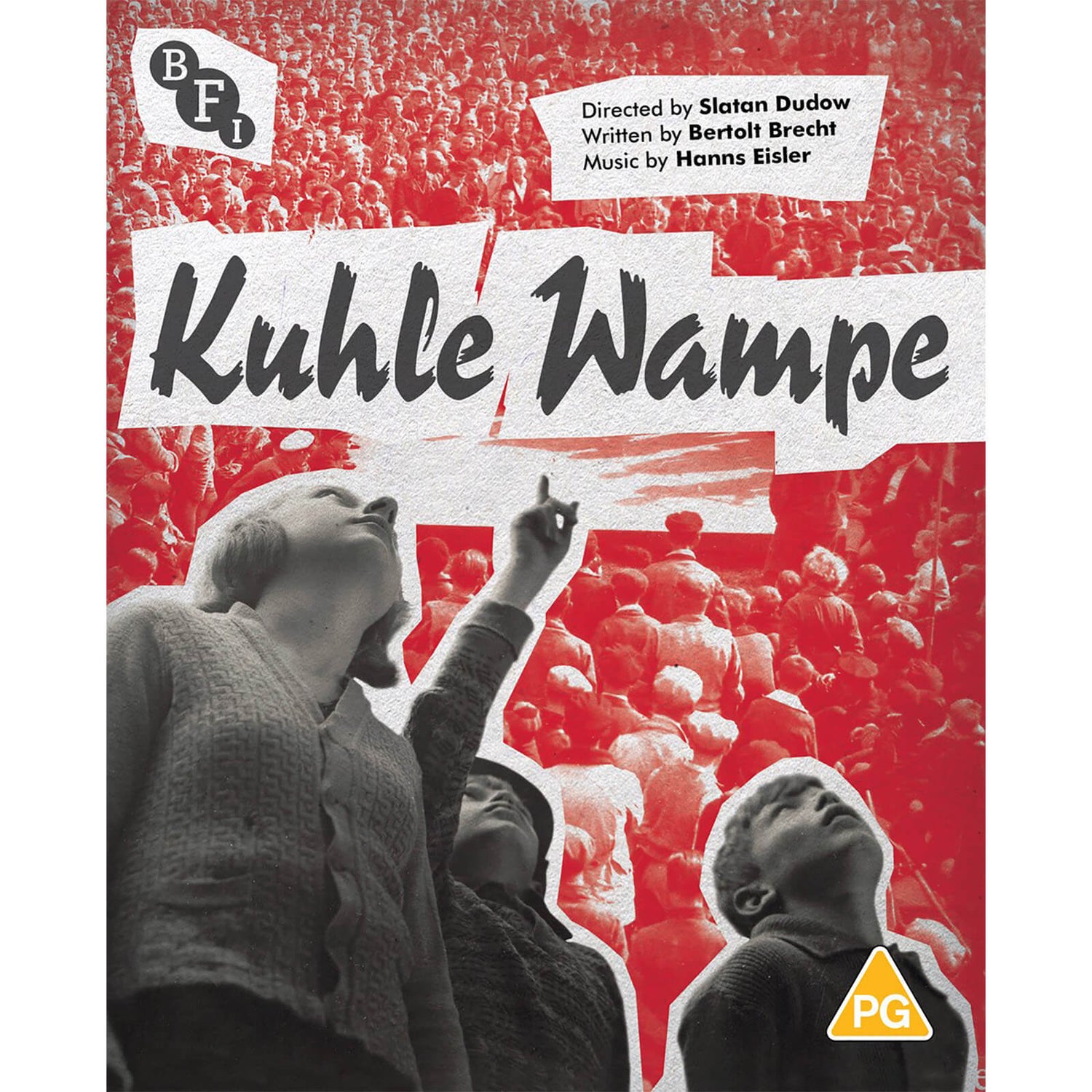Toegevoegd aan je winkelwagen
Kuhle Wampe
Adviesprijs: €23,49
€17,99
Bespaar: €5,50
Conceived by Bertolt Brecht at the political and artistic watershed of the waning Weimar Republic, Kuhle Wampe is remarkable for its enduring sense of immediacy and accessibility.
At the height of the Depression, Anni and her parents are evicted from their Berlin home and sent to Kuhle Wampe, a camp that now accommodates the ever-growing numbers of the dispossessed. Exquisitely photographed by Günther Krampf (Nosferatu), this 'semi-documentary' combines inspired montage sequences with intimate realist and cosmic scenes of Anni's family life, driven along by Hanns Eisler’s celebrated score.
The only Communist film to come out of Weimar Germany, Kuhle Wampe was swiftly banned upon Hitler's rise to power in 1933.
- Presented in High Definition and Standard Definition
- Newly commissioned commentary by film scholar Adrian Martin (2022)
- Introduction and Q&A by Andrew Hoellering (1999, 36 mins + 14 mins): the writer discusses his father’s work on Kuhle Wampe
- Bread (1934, 12 mins): a short political film made in protest against social inequality, poverty and unemployment
- Beyond This Open Road (1934, 11 mins): modernist short by B Vivian Braun and Irene Nicholson, with poetic images of workers’ leisure time
- Housing Problems (1935, 16 mins): Arthur Elton and Edgar Anstey’s powerful documentary about slum housing
- Eastern Valley (Donald Alexander, 1937, 17 mins): a documentary about a Welsh co-operative scheme run by unemployed miners
- **FIRST PRESSING ONLY** 28-page booklet featuring essays by Martin Koerber and Henry K Miller and an archive review by Jill Forbes
- BFI
- 71 mins approx
- Slatan Dudow
- PG
- Hertha Thiele
- Ernst Busch
- Martha Wolter
English
- 1979
- German
- 2
- B
- BFI
Kuhle Wampe
Adviesprijs: €23,49
€17,99
Bespaar: €5,50
Beschikbaar
Bezorgen & retourneren
Conceived by Bertolt Brecht at the political and artistic watershed of the waning Weimar Republic, Kuhle Wampe is remarkable for its enduring sense of immediacy and accessibility.
At the height of the Depression, Anni and her parents are evicted from their Berlin home and sent to Kuhle Wampe, a camp that now accommodates the ever-growing numbers of the dispossessed. Exquisitely photographed by Günther Krampf (Nosferatu), this 'semi-documentary' combines inspired montage sequences with intimate realist and cosmic scenes of Anni's family life, driven along by Hanns Eisler’s celebrated score.
The only Communist film to come out of Weimar Germany, Kuhle Wampe was swiftly banned upon Hitler's rise to power in 1933.
- Presented in High Definition and Standard Definition
- Newly commissioned commentary by film scholar Adrian Martin (2022)
- Introduction and Q&A by Andrew Hoellering (1999, 36 mins + 14 mins): the writer discusses his father’s work on Kuhle Wampe
- Bread (1934, 12 mins): a short political film made in protest against social inequality, poverty and unemployment
- Beyond This Open Road (1934, 11 mins): modernist short by B Vivian Braun and Irene Nicholson, with poetic images of workers’ leisure time
- Housing Problems (1935, 16 mins): Arthur Elton and Edgar Anstey’s powerful documentary about slum housing
- Eastern Valley (Donald Alexander, 1937, 17 mins): a documentary about a Welsh co-operative scheme run by unemployed miners
- **FIRST PRESSING ONLY** 28-page booklet featuring essays by Martin Koerber and Henry K Miller and an archive review by Jill Forbes
- BFI
- 71 mins approx
- Slatan Dudow
- PG
- Hertha Thiele
- Ernst Busch
- Martha Wolter
English
- 1979
- German
- 2
- B
- BFI
Klantenrecensies
Er zijn op dit moment geen recensies beschikbaar.





